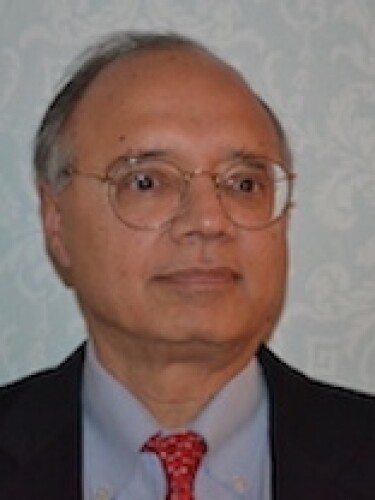With the potential FDA approval of an MDMA-based therapy for PTSD on the horizon, biopharma stakeholders are eyeing psychedelics with fresh anticipation.
Pictured: A psychedelic therapy walks down the road to approval/Nicole Bean for BioSpace
Jennifer Mitchell, a neuroscientist at the University of California, San Francisco, witnessed a lot of recreational drug use growing up in the city in the 1970s and later as a college student in Oregon. At the time, drugs such as mushrooms, LSD and marijuana were considered by many to be toxic and frightening, but Mitchell also saw hints of how certain psychedelics could help people in crisis.
“When I first saw things like ibogaine [a dissociative psychedelic] in action, I was blown away,” she told BioSpace, adding that “it was clear [psychedelics] had so much potential.”
The idea of using psychedelics to treat psychiatric disorders has been around since the 1950s, when academics investigated LSD and psilocybin (the psychoactive ingredient in mushrooms) as therapeutics for trauma, depression and addiction. But early work lacked the rigor of today’s standards, Mitchell said, and regulatory agencies wouldn’t touch them. In the 1990s, when she approached the FDA as a graduate student about giving psilocybin to men who had survived the AIDS crisis with lasting demoralization and depression, “I was laughed out of the building,” she said.
And yet today, Mitchell is the lead investigator on a Phase III clinical trial that may well lead to the first true FDA-approved psychedelic therapeutic: a combination of MDMA and psychotherapy used to treat post-traumatic stress disorder (PTSD). In the intervening years, cultural shifts combined with rigorous scientific study and investments from biopharma have ushered in a new generation of psychedelic treatments, some of which have already been approved in other countries. As stakeholders in the U.S. await the FDA’s decision on MDMA, industry analysts report that interest in psychedelics is only increasing.
“It feels great,” Mitchell said of MDMA’s possible approval, which could come as soon as next year. She noted, however, that the increased scrutiny has made psychedelics a hot topic and said she hopes that companies wanting to experiment with and patent new drugs will do so safely and equitably. “I’m a bit of a worrywart, and so I’m a little concerned about all these people that have joined the show with different priorities. But these drugs can really help people, and so I’m excited that others are interested.”
An Emerging Market
Analysts from Mordor Intelligence, an industry analysis company based in India, told BioSpace there was a 10-fold increase in investments in psychedelics between 2019 and 2020, from roughly $65 million to $615 million. In 2021, investment totals surpassed the latter figure in just three months, fueled in part by splashy IPOs by COMPASS Pathways ($147 million), Atai Life Sciences ($225 million), and GH Research ($160 million). At present, around 60 publicly traded companies are focused on psychedelics, Mordor analysts noted, and they predict a 7% compound annual growth rate over the next five years.
At least one instance has shown how lucrative these therapies could be. In 2019, Janssen released the antidepressant Spravato, a nasal spray that delivers a compound called esketamine that is chemically related to ketamine. Spravato sales in the first quarter of this year topped $131 million—an 87% increase from the same period in 2022—making it the fastest-growing program in Janssen’s portfolio.
New York–based Seelos Therapeutics, which targets unmet medical needs in central nervous system and rare disorders, is one of the companies looking to tap into ketamine’s potential. Seelos is pursuing the drug for acute and chronic psychiatric disorders and recently announced promising results in a Phase II trial testing SLS-002, an intranasal form of ketamine, as a treatment for major depressive disorder with an imminent risk of suicide. Unlike many treatments that take effect over weeks, SLS-002 induced early and persistent improvement in depressive symptoms beginning just four hours after the first dose.
Raj Mehra, the company’s CEO, told BioSpace that there’s a huge financial incentive to develop these drugs both for patients and the medical system. According to the Centers for Disease Control and Prevention, 1.7 million people attempted suicide in 2021, and each year, suicide and nonfatal self-harm cost the U.S. over $500 billion. “Those are staggering numbers, and all with no drug therapy approved and nothing on the horizon,” Mehra said.
Seelos’s ketamine regimen includes five doses given over 16 days, and the one-time treatment will cost about $4,000, which Mehra said makes it one of the more affordable psychedelics under development. The potential return on investment is “massive,” Mehra added, given what Seelos has spent preparing the therapy to submit for FDA approval, which the company expects to do in the next three years. If each person admitted for attempted suicide received ketamine, “we could save a lot of lives, which feels really good.”
Regulatory Affairs
But even as companies push ahead, many are keeping an eye on Mitchell’s precedent-setting MDMA trial. Amy Emerson, CEO of the Multidisciplinary Association for Psychedelic Studies Public Benefit Corporation (MAPS PBC), which is funding the research, told BioSpace that all signs point to the company being on track to submit for approval by the end of the year and that she feels confident about the likelihood of success. The group worked closely with the FDA throughout its trials, and Emerson said the agency’s recent release of guidelines for psychedelic research seems to signal a willingness to support further study.
In response to written questions from BioSpace, a spokesperson for the FDA’s Center for Drug Evaluation and Research said that while the agency “recognizes that in recent years, interest in the therapeutic potential of psychedelic drugs has been increasing,” it cannot comment on the likelihood of approval, nor on which division would oversee MDMA if it enters the market.
It’s also unclear how an approval would impact the drug’s scheduling. Typically, drugs that are found to have a medical purpose are rescheduled automatically, and yet marijuana remains a Schedule 1 drug despite the fact that some states allow doctors to prescribe it, in part because it lacks rigorous safety data. But Mitchell said researchers working on MDMA and psilocybin, another psychedelic expected to go before the FDA within the next few years, are collecting this information across diverse populations and plan to submit it alongside their efficacy data.
Regardless of the outcome, Emerson said it’s very validating to have arrived at this point. “I’ve been working towards this for almost 20 years now, and even now, it feels a little unbelievable to be where we’re at,” she said. “We need more treatments for mental health, and our successes show that these drugs have a good possibility of working.”
Amanda Heidt is a freelance science writer and editor based in Moab, Utah. To learn more, follow her on X (@Scatter_Cushion) or visit www.amandaheidt.com.









